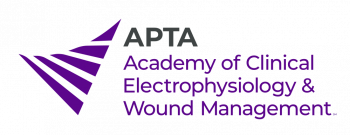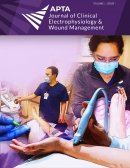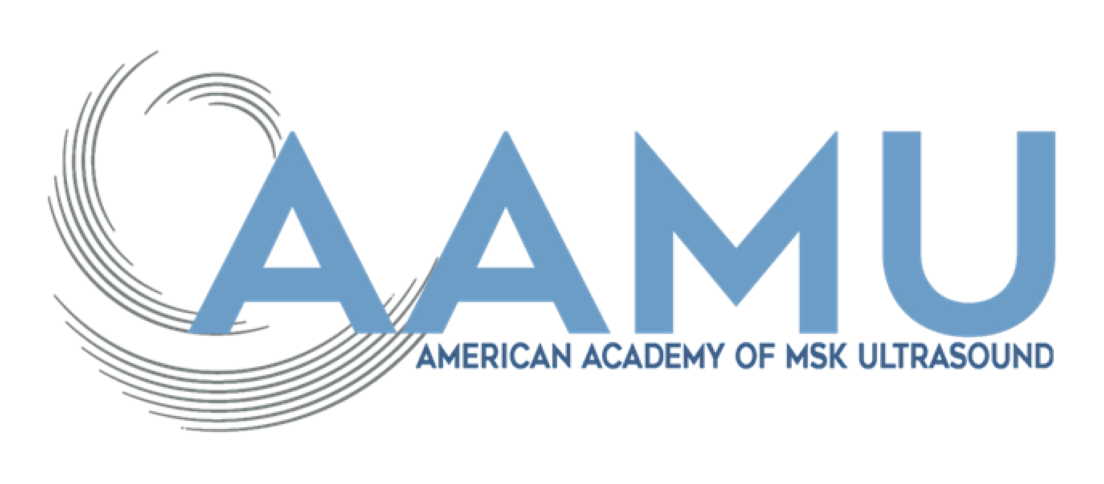ACEWM History – Trailblazers
Read the full text >Abstract
This invited article describes the very significant contributions of three past ACEWM leaders and provides member comments.
In this second edition of the JCEWM, let’s take a few minutes to remember past ACEWM leaders and recognize their significant and lasting impact on not only our Academy, but also on the profession of physical therapy. This article focuses on three ACEWM trailblazers: Dr. Charlene “Billie” Mae Nelson, Dr. Roger M. Nelson, and Dr. Lynda D. Woodruff (included pictures are older/low resolution and may not show clearly).
Dr. Charlene “Billie” Mae Nelson, PT, MA, FAPTA
Dr. Charlene “Billie” Mae Nelson (Figure 1) held degrees from Florida State University and the College of William and Mary, earned a Certificate in Physical Therapy (1951) from the Medical College of Virginia, and completed a master’s (1964) in Anatomy at Duke University.1,2 Those who knew her described her as viewing physical therapy not as a profession, but as a way of life. Dr. Nelson was a well-loved and influential physical therapy faculty member at University of North Carolina-Chapel Hill (UNC) for over 30 years, retiring in 1993 as an associate professor emerita.2 A former student described her this way:
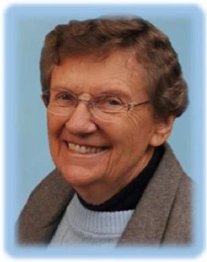
Figure 1. Dr. Charlene Mae “Billie” Nelson. Courtesy of the Academy of Clinical Electrophysiology and Wound Management. https://www.multibriefs.com/briefs/apta-cewm/APTA-CEWM072017.php
“She was my instructor at UNC School of Physical Therapy in 1963, a mentor, then a colleague, and fortunately a wonderful friend as the years went on. In the 1960’s faculty were not “friends” with students, but Ms. Nelson was different – kind, calm, caring, approachable, always pleasant and pos-itive. And oh, so brilliant, but she had the ability to make difficult electrodiagnosis subject matter understandable.” Harriett B. Loehne, ACEWM Member
Dr. Nelson was a founding member of the ACEWM in the 1970s and was instrumental in establish-ing electrodiagnostics as an area of specialization for physical therapists.2
“Her first EMG unit was custom built for her by a biomedical student and was the length of one wall in her lab and about 3 feet high. She was so excited to have this new toy, and as a student work-ing as a “gopher” in the PT department one summer, I was her first “subject.” Dr. Nelson immediately made students feel like colleagues in the profession and took great pride in all of her students’ achievements.” Rose Hamm, ACEWM Member
“Her conviction to measure competence in practice, her organizational skills and her understanding of psychometrics made her the optimal person to lead the specialization process. Putting into writing a description of those attributes, education and skills required to be recognized as a clinical specialist would not have occurred without her tenacious, organized and kind effort.” Rodney Schlegel, ACEWM Member
The first specialist exam was offered in 1986, and since then over 230 physical therapists have achieved certification.3,4 Historically a male-dominated field, Dr. Nelson was the first female to be certified.5 She also lobbied for physical therapists’ ability to conduct electrodiagnostic studies with-out the need for physician approval.1
For her many service activities and advocacy, Dr. Nelson received the Lucy Blair Service award in 1981 and was named a Catherine Worthingham Fellow in 2012, the highest honor from the American Physical Therapy Association (APTA). Dr. Nelson also received (posthumously) the APTA Foundation’s 2022 Spirit of Philanthropy Award in recognition of the Charlene Mae Nelson Endow-ment Fund (https://foundation4pt.org/nelson/) established in her memory to provide “doctoral scholarships to physical therapist researchers with priority given to those involved in Clinical Electrophysiology.”6
Dr. Nelson was an active APTA and Academy member, attending conferences into her 80s and participating in various other professional activities. Figure 2 shows Dr. Nelson at UNC’s 50th Physical Therapy Reunion in 2015. Her contributions to the profession as a beloved teacher and mentor and trailblazing advocacy for physical therapy electrodiagnostic practice created a legacy of dedicated physical therapists and a clinical specialization that grows stronger every year.
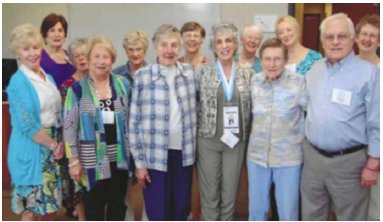
Figure 2. Dr. Charlene Mae “Billie” Nelson (second from right, front row) celebrating UNC’s 50th Physical Therapy Reunion; Courtesy of PT Division, University of North Carolina at Chapel Hill.
Dr. Roger M. Nelson, PT, PhD, FAPTA
Dr. Roger Nelson’s (Figure 3) interest in physical therapy started when he worked as a PT aide in his brother’s clinic at St. Vincent’s Hospital (now Richmond University Medical Center) in the 1950’s. He earned a bachelor’s degree in physical therapy from New York University (1965, Figure 4), a master of science from Sargent College of Allied Health Professions, Boston University (1971), and a PhD from University of Iowa (1981).7 Dr. Nelson was a commissioned officer in the United States Public Health Service (USPHS) for over 20 years and through regular meetings with the U.S. Surgeon General, was a positive influence on national healthcare policy. He also had a positive impact on physical therapy education and research, serving as a professor and/or chair at three universities, authoring/co-authoring over 50 peer reviewed articles, and delivering over 180 local, national, and international presentations.7
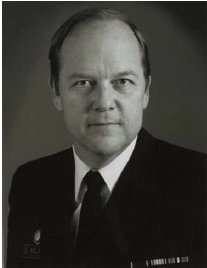
Figure 3. Dr. Roger M. Nelson. Courtesy of the American Physical Therapy Association. https://www.apta.org/article/2022/10/26/physical-therapy-leader-roger-nelson-dies
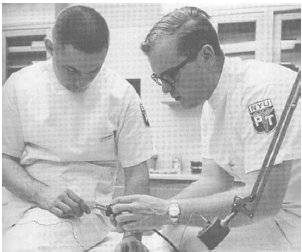
Figure 4. Dr. Roger M. Nelson with a colleague at NYU. Courtesy of John Lugo.
In direct service to the profession, Dr. Nelson served on the APTA’s Board of Directors, House of Delegates, and the task force that developed the clinical specialization process for physical therapists. Perhaps his most “significant contribution to APTA and the physical therapy profession was his leadership in the development of taxonomy and nomenclature that led to the first APTA Guide to Physical Therapist Practice."8 Dr. Nelson also chaired the task force that developed the “Guide.”7
He was instrumental in launching our Academy (then section) in the 1970s and served in many roles over the years including treasurer, vice president, and two terms as president.
In 1973, Dr. Nelson was part of the first post-professional training course for physical therapists in electrodiagnosis and continued training therapists, chiropractors, and physicians across the country for many years. He was a valued colleague, effective teacher, and treasured friend to many.
“Roger was a good and lasting friend. You always knew where he stood on matters and when you may have had a different view and debated a matter at hand, you always were, in the end, good friends.” Rodney Schlegel, ACEWM Member
He was the first president of the American Academy of Clinical Electrodiagnosis (AACE) and was influential in developing the first accredited clinical electrodiagnosis residency program. For all his contributions to the profession, he was named a Catherine Worthingham Fellow in 1997. An inter-view with Dr. Nelson was recorded after he delivered the 44th McMillan Lecture in 2013 and is available for viewing at https://www.youtube.com/watch?v=wlR0jRKv5Cs.
In addition to his numerous clinical, academic, and professional service accomplishments, Dr. Nelson’s most enduring legacy is probably his dedication to fostering the professional and personal development of others (Figure 5). He provided sage advice to students and novice clinicians who asked for his counsel and was able to provide a grounded perspective consistent with his New York City upbringing. He was a man of faith with strong family connections and often treated his professional mentees as family members or church congregants. He invested not only his time but financial resources to support those who demonstrated a motivation to learn and desire to give back to the profession and community. His life’s work and service will continue to be felt for generations as those he influenced will continue following his example.
“…Roger took this young graduate from Pittsburgh under his wing and put me on the path for this great profession. A great mind, dedicated, and ardent professional…and for now this well-seasoned electromyographer is profoundly grateful!” John G. Eddy, ACEWM Member
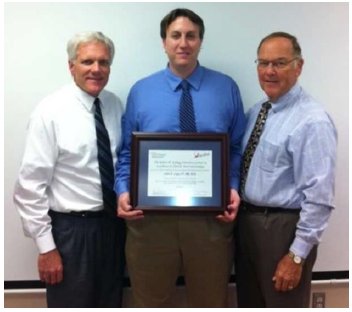
Figure 5. Dr. Greg Ernst, Dr. John Lugo, and Dr. Roger Nelson (left to right). Courtesy of John Lugo.
Dr. Lynda D. Woodruff, PT, PhD, FAPTA
Dr. Lynda D. Woodruff was a passionate advocate for social justice, a dedicated academician and mentor, and loving friend. Dr. Woodruff earned undergraduate (1969) and graduate (1971) degrees from Case Western Reserve University and a PhD from Georgia State University (1984). Early experiences working as a physical therapist inspired her lifelong advocacy for social justice and equity in healthcare.
“I so admired her approach to the subject [social justice] and her devotion to resolving those issues by setting forth, by example, what being a health care professional and educator would mean to potential therapists. Lynda didn’t follow the victimhood or quota approach but rather approached the minority community by saying look at what you can be. You can become a leader. You can improve the lives for those in your community and elsewhere. You have a profession that welcomes you and will provide opportunities for you to grow, thrive and prosper if you are willing to expend the energy to attain excellence. And she worked to provide those opportunities.” Rodney Schlegel, ACEWM Member
Throughout her career, Dr. Woodruff worked to improve minority student and faculty recruitment and retention and was instrumental in establishing the APTA’s Advisory Council on Minority Af-fairs and Office of Minority Affairs.9 In 2021, the APTA designated a namesake conference room, the Black PT Heritage Room, (Figures 6 and 7) in the new APTA headquarters Centennial Center in tribute to Dr. Woodruff.9
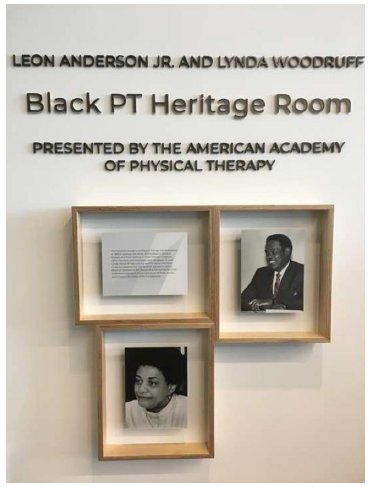
Figure 6. Woodruff conference room at ATPA Headquarters. Courtesy of Karen Gibbs.
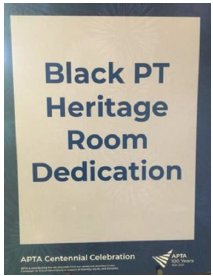
Figure 7. Black PT Heritage Room Dedication at ATPA. Courtesy of Eddie Traylor.
“Lynda and her family also maintained an amazing ability to keep such a sense of humor throughout their drive for social justice. I recall her telling the story of the Martin Luther King days when she and her family were in Atlanta and went to a restaurant for dinner. They were told immediately that “We don’t serve coloreds.” They responded, “That’s OK. We don’t eat coloreds” and proceeded in, sat down, and were served dinner.” Rodney Schlegel, ACEWM Member
Dr. Woodruff’s career in academia began in 1974 at UNC, where she was the first African American faculty member in the Division of Physical Therapy,9 and continued at Georgia State University four years later. She served as faculty at Alabama State University (ASU), establishing their Doctor of Physical Therapy program.10 Dr. Woodruff was also a professor and founding director of the physical therapy department at North Georgia College, developing the state’s first physical therapy post-baccalaureate program.11 With over 40 years of teaching and research, Dr. Woodruff received the Education Achievement Award from the Physical Therapy Association of Georgia (2014), recognizing her “significant impact on the quality of physical therapy education.”12 During her teaching career, Dr. Woodruff provided housing and mentored numerous physical therapy students who identified themselves as “Woody Babies.”11
Dr. Woodruff was a true servant leader. Among her many activities, she was a long-time active ACEWM member, Georgia Delegate and House Elections Committee member for APTA’s House of Delegates, a Foundation for Physical Therapy trustee, and she served on the Georgia State Board of Physical Therapy for over 10 years.
Dr. Woodruff received many awards over her career including the ACEWM’s Distinguished Service Award, APTA’s Lucy Blair Service Award (1990), and the Kellogg Fellowship for International Leadership. In 2006, the Georgia Senate established February 24th as “Dr. Lynda D. Woodruff Appreciation Day.”10 The first annual Lynda D. Woodruff Lecture on Diversity, Equity, and Inclusion in Physical Therapy, cosponsored by the APTA13 in honor of Dr. Woodruff, was presented by Dr. Gregory Hicks, PT, PhD, FAPTA in 2020. Past lectures may be viewed at https://www.apta.org/. Dr. Woodruff was named a Catherine Worthingham Fellow posthumously by the APTA in 2023.
“Through the years Lynda proved to be a role model as an enthusiastic educator, an inclusive colleague, a persistent fighter for minority leadership in our organization, and a champion cheerleader, nominating many colleagues for APTA awards during her years of service. I was so pleased to read in the November 2023 issue of APTA Magazine, that she received the honor she so deserved and exemplified – the Catherine Worthingham Fellow, awarded posthumously. Her leadership and friendship serves as a daily example of the best of our profession.” Meryl Gersh, ACEWM Member Dr. Woodruff’s distinguished career exemplified leadership, devotion to students and colleagues, and dedication to social justice. Her contributions to physical therapy will have lasting positive impacts on the profession for future generations. “Lynda was a longtime friend and my mentor. There are so many valuable lessons that I learned from her and continue to use each and every day.” Eddie Traylor, ACEWM Member
Acknowledgements
Authors wish to acknowledge that some of the pictures in this article were reprinted with permission from the ACEWM, APTA, and the PT Division of UNC-Chapel Hill. Also, authors acknowledge that some pictures are low quality, but we felt it was more important to share them versus not to include them. Information for this invited history report was primarily gathered from online sources (obituaries, public announcements, APTA website) with each source cited. Permission was given by John G. Eddy to use his direct quote.
References:
- Obituary for Charlene Mae Nelson. Accessed November 28, 2023. https://www.beyersfuner-alhome.com/obituaries/Charlene-Nelson-3/#!/Obituary
- Academy of Clinical Electrophysiology and Wound Management. ACEWM Report: In Memo-rium: Charlene “Billie” Mae Nelson, PT, MA, FAPTA. Accessed November 28, 2023. https://www.multibriefs.com/briefs/apta-cewm/APTA-CEWM072017.php
- Foundation for Physical Therapy Research. Charlene “Billie” Nelson. Accessed November 28, 2023. https://m.facebook.com/foundation4pt/pho-tos/a.395872144349/10159918257294350/?type=3&source=57
- American Board of Physical Therapy Specialties. APTA Specialist Certification. Become a Board-Certified Clinical Electrophysiologic Clinical Specialist. Accessed November 28, 2023. https://specialization.apta.org/become-a-specialist/clinical-electrophysiology
- American Physical Therapy Association. Endowments. Accessed November 28, 2023. https://www.acewm.org/content/about/information-opportunities
- Foundation for Physical Therapy Research. Charlene Mae Nelson Endowment Fund. Accessed November 28, 2023. https://foundation4pt.org/nelson/
- Nelson, RM. 44th Mary McMilliam Lecture: The next evolution. Phys Ther. 2013;93:1415-1425.
- American Physical Therapy Association. Physical Therapy Leader Roger Nelson, PT, PhD, FAPTA Dies. Accessed November 28, 2023. https://www.apta.org/article/2022/10/26/physical-therapy-leader-roger-nelson-dies
- American Physical Therapy Association. APTA HQ Room Named for Visionaries Leon Ander-son Jr., and Lynda Woodruff. Accessed November 30, 2023. https://www.apta.org/news/2021/08/17/anderson-woodruff-room
- The University of Alabama News: School of Health Professions. Black History Month: Honoring Notable Physical Therapy Trailblazers. Accessed November 30, 2023. https://www.uab.edu/shp/news/home/programs/black-history-month-notable-physical-thera-pists-shaping-profession
- American Physical Therapy Association. Lynda Woodruff, Leader in Physical Therapy Educa-tion, Dies at 70. Accessed November 30, 2023. https://www.apta.org/news/2018/03/28/lynda-woodruff-leader-in-physical-therapy-education-dies-at-70
- College Park Physical Therapist Receives State Achievement Award. Accessed November 30, 2023. https://patch.com/georgia/buckhead/college-park-physical-therapist-receives-state-achievement-award-0
- American Physical Therapy Association. Lynda D. Woodruff Lecture: Who Do We Want to Be? Responsible Stewardship of our Profession. Accessed November 30, 2023. https://www.apta.org/news/2020/07/01/woodruff-lecture-who-responsible-stewardship-of-pro-fession
